They are Albie Feary, Jess Wilson, Courtney Sang, and Katrina Jackson.
“This strongly endorses that viticulture is an exciting career for both men and women,” says Nicky Grandorge, leadership and communities manager at New Zealand Winegrowers. “All six contestants are very passionate about viticulture and love the variety of skills and knowledge required to run a successful vineyard.” They will be tested on a range of these during the National Final, which consists of both practical and theoretical challenges. One of these challenges is a research project to assess pruning options during a labour shortage…
‘I love the way wine connects people to time, place and each other’
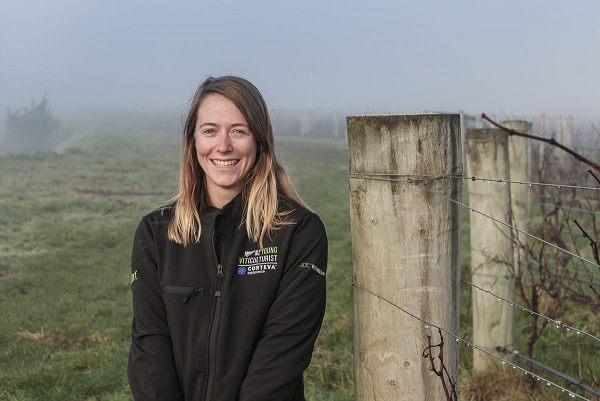
ALBIE FEARY, ATA RANGI, MARTINBOROUGH
Why do you want to work in a vineyard?Albie: “I was drawn into viticulture at an early age because I wanted a career that allowed a life lived outdoors and connected to the seasons. I love plants and the grapevine is an incredible perennial that so clearly shows what a place and its people are capable of. I have a love of fine wine too, but most importantly I love the way wine connects people to time, place and each other.”
What’s your favourite part of the job?
Albie: “My favourite part of the job is that every day is different. One day I might be out sowing cover crops, the other I might be taking soil samples, or pruning our young vines. Come harvest, I'm fortunate enough to be in the winery helping to make the wine. I love that I get to have a foot in both the vineyard and in the winery, that way I am always learning.”
‘The future of the vineyard needs to be about efficiency, reducing carbon emissions and keeping a skilled workforce feeling valued’
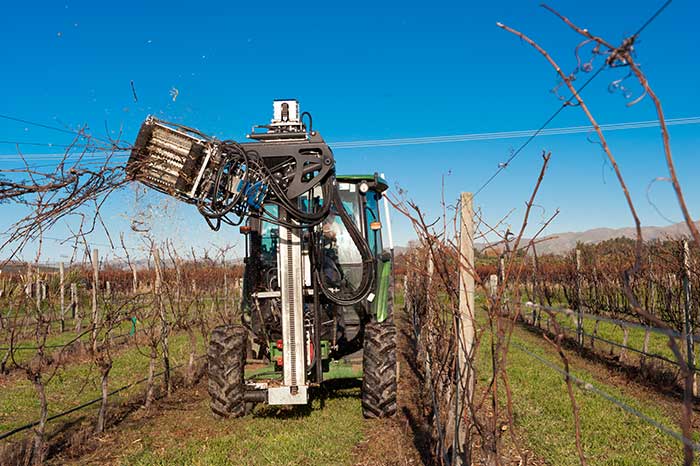
What’s the solution for pruning during a labour shortage?
Albie: “An ambitious vineyard owner needs to look to the future to make their vineyard sustainable. Important issues will continue to challenge growers around ongoing lack of secure labour and likely future requirements to reduce carbon emissions. The future of the vineyard needs to be about efficiency, reducing carbon emissions and keeping a skilled workforce feeling valued.
“With this in mind, I recommend the following. Start pruning early, as soon as harvest is complete and book in early the contracting hire of the Klima machine (above). The Klima machine is a front-mounted pruning stripper and mulcher that can operate at speeds between 2-6km/hour and cover at a maximum 300ha/season. It reduces emissions because it can do three tasks in a single pass. A great New Zealand invention, this recommendation works well for regions like Marlborough with scale and contractors who can offer these services. If the vineyard trellising system needs converting for the machine to operate, do so as soon as possible. This way, in years to come, the full efficiency of the Klima can be accounted for as labour isn’t required to release wires, strip canes or mulch prunings.
“In selecting this method, the vineyard is able to continue to be cane pruned because labour inputs have been reduced by roughly 40%. Cane pruning is preferred over spur pruning for its consistent yield, frost mitigation as well as canopy architecture for quality grape production. Most importantly, the vineyard is in a better position to employ fewer, more highly skilled staff and pay them competitive rates for their important decision-making and pruning skills.
“By using the Klima to efficiently complete slow, low-skilled and sometimes dangerous tasks, we can make better use of limited labour in a shortage by training staff to make good pruning decisions and retaining them with competitive rates.”
‘We are experimenting with some long-spur Sauvignon Blanc’
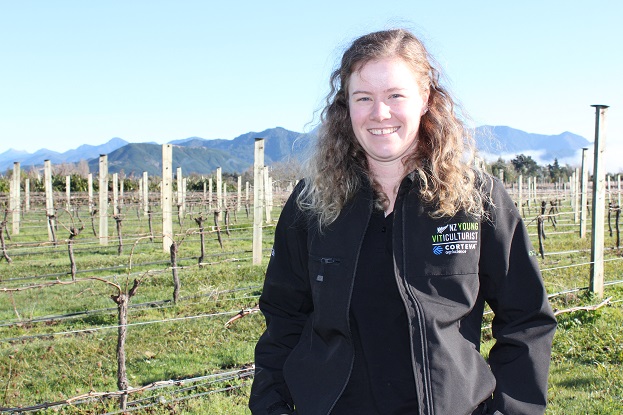
JESS WILSON, WHITEHAVEN WINES, MARLBOROUGH
Why do you want to work in a vineyard?Jess: “I am developing my career in viticulture because it is such an exciting industry to be a part of. No season is the same and there are always new challenges to overcome. The industry is very open and everyone happily shares their knowledge and experiences. I know I have so much more to learn and I love it.”
What’s your favourite part of the job?
Jess: “What I love about my job is that it is a perfect combination of science, practical work and people – to me it is the perfect job.”
What’s the solution for pruning during a labour shortage?
Jess: “I think there are a number of solutions to pruning during the labour shortage. At Whitehaven we are trialling the Klima for mechanical stripping and we are also experimenting with some long-spur Sauvignon Blanc. We have to be open to trying different methods because this can allow us to learn and potentially future-proof our vineyard for future shortages.”
‘I have followed my passion for wine to the roots’
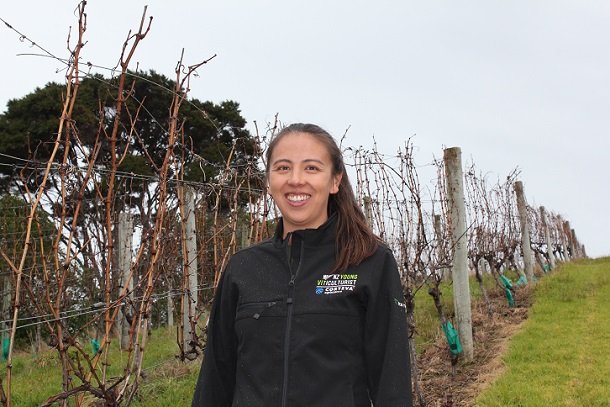
COURTNEY SANG, OBSIDIAN, WAIHEKE ISLAND
Why do you want to work in a vineyard?Courtney: “My career in the wine industry began in the winery, making wine. But as I learnt quickly, most of the winemaking happens in the vineyard. So, I have followed my passion for wine to the roots and have been working hard to learn as much as I can about viticulture in my role at Obsidian Wines.”
What’s your favourite part of the job?
Courtney: “Being a viticulturist requires a lot of unexpected skills. Not only are you expected to be a meteorologist to predict the weather, you also get to innovate with number 8 wire. But my favourite part of the job is being able to experience the fruits of your labour. The hard work over the year pays off when you see the grapes turning to wine and sharing a glass of wine that you’ve helped to make with friends and family.”
What’s the solution for pruning during a labour shortage?
Courtney: “Where possible, mechanisation is going to be the best solution for pruning during a labour shortage. And where mechanical pruning isn’t possible, using smaller experienced teams and pruning efficiently will be essential. This could be achieved with changes to pruning style, better training and alternatives to equipment such as spraying wound protectants rather than manually applying it. But hopefully we will see improvements to the labour shortage soon!”
‘It’s all worth it for that delicious drop’
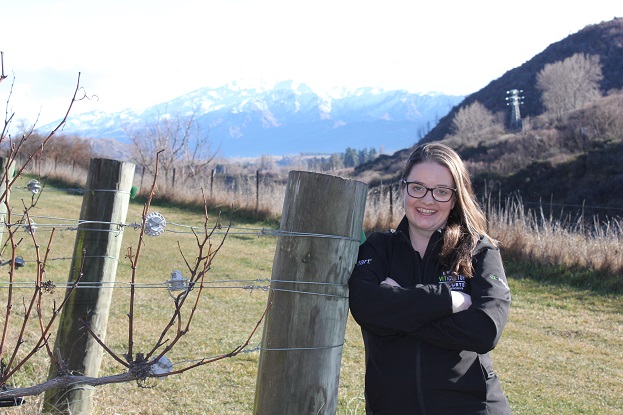
KATRINA JACKSON, CHARD FARM, CENTRAL OTAGO
Why do you want to work in a vineyard?Katrina: “I was always interested in wine from a young age and decided to study winemaking at uni. The grand plan was to become a winemaker, however, after moving to Central Otago, I found I had way more fun in the vineyard and stayed. I was offered the dream career at Chard Farm and have loved it ever since!”
What’s your favourite part of the job?
Katrina: “Definitely seeing the final product in a glass or speaking to people who love your wine. Knowing that the hard work; the frost fighting, long winter days pruning, and hot summers to produce a fine wine is all worth it for that delicious drop.”
What’s the solution for pruning during a labour shortage?
Katrina: “Mechanising pruning as much as possible, and having a smaller, more experienced crew. I've found that working with a smaller crew and offering more than just a wage, but offering training and a workplace that feels more inviting and fun is a great place to start and keep staff around for longer than one season.”
These four women will be facing two young men in the final: Sam Bain from Villa Maria and Tristan van Schalkwyk from The Bone Line, North Canterbury. Prizes include a Hyundai Kona for a year, an Ecotrellis travel grant, an educational visit to Australia with Corteva, Bahco golden secateurs and various cash prizes.


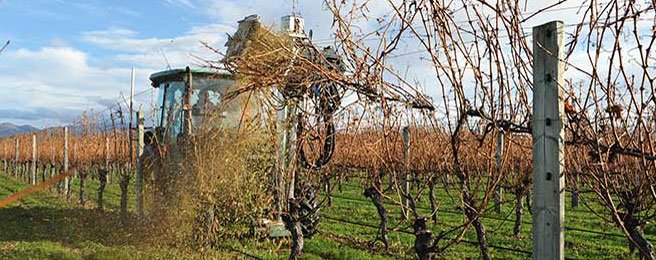








.png)









